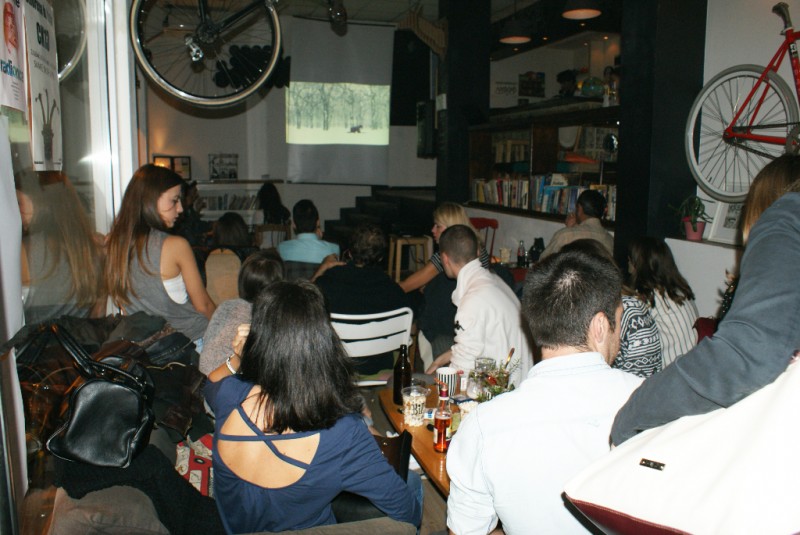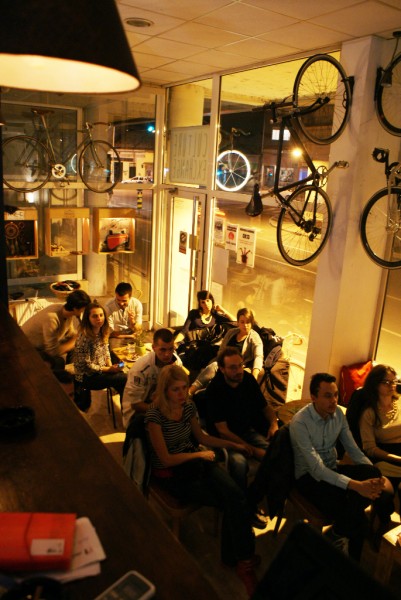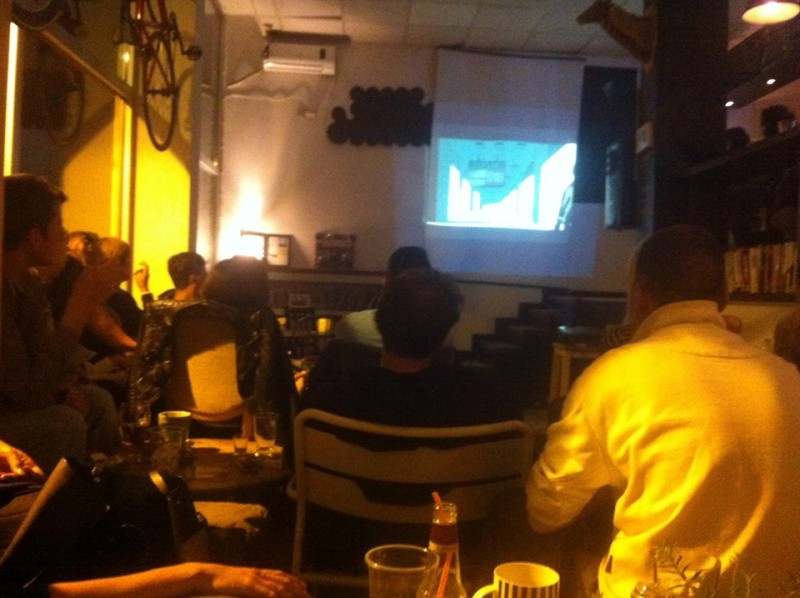
|
What was the topic of the discussion and how was organised? |
| Discussion was a group reaction and discussion on a anti-war film. Taking into consideration that a good choice of a documentary or film is great way for introduction and discussion that leave a space for critical opinion. This time choice was made- Ari Folman animated film, “Walz with Bashir”. Thinking that public in Serbia saw a lot of movies related to subject, but always including Balkan regions. So, instead showing the film which subject treats Yugoslavian conflict, I showed the one that shows really interesting approach to war traumas and empathy of solder who participated in massacre in refugee camp.
The movie was chosen to push the audience to critical think and realise, what psychical consequences leaves the war, and can we have a empathy for the victim that is not on our side. In addition, movie was announced in the famous local radio, and on their internet portal. Idea was to attract different citizens, from different age and social background. Discussion was made in the well known cultural space “Culture Exchange”, where more people joined, attracted by the movie and discussion. |
|
Explain the reaction of the participants on your speech. |
| I was positively surprised how much participant has information about the topic. Most of the participant were interested why I choose this movie. Aftre briefly explanation, we pass to watching the film. After watching the film, there were lot of questions. I made an accent on the post- war trauma that main character in the film experienced. Also it was raised question of the empathy for the victims in a reconciliation context. |
|
Have you notice the impact of your lecture on the participants? Explain. |
| The movie shocked some. Lot of questions were opened. But the one that tickled everybody was: How society treat “dogs of the war” afterwards? And why this masacre is less known in public? Interesting was a topic of a reconciliation related to the empathy that is director showing by making this film. |
|
What were the questions posed by the participants and how did you react? |
| Some of the questions, naturally embarked Israeli-Palestinian conflict, and Sabra and Shatila massacre, where I could give just a personal opinion. But during the dialog about reconciliation, lot of participants had they own opinion, and was interesting discussion. Likewise, the entrants were interested in Reconciliation Ambassadors Programme. |






